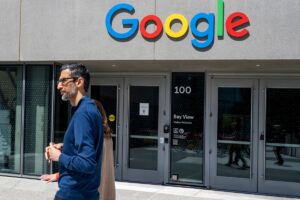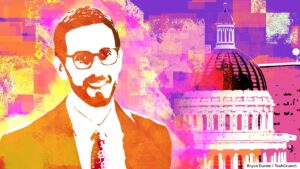What do the Rothschilds, big wave surfing, and cows have in common? A Portuguese man by the name of Francisco Roque de Pinho, of course.
Francisco used to be a banker at Rothschild, the most famous of European banking dynasties. For the past eight years he’s been quietly operating an investment firm funding sustainable cattle grazing in South America. In his spare time, he’s out conquering the world’s biggest surfable waves in Nazare, Portugal.
Today, Francisco is unveiling some of the mystique behind his business life with the official launch of the Land Group, a Lisbon-based €120mn investment vehicle that acquires and restores farmland using regenerative agriculture techniques.
“Regenerative agriculture typically leads to lower production costs, higher yields, higher market prices, and additional revenue streams such as carbon credits,” Francisco told TNW. “That’s an attractive proposition for investors.”
The Land Group focuses on producing “naturally-reared, carbon-neutral, grass-fed beef” using adaptive grazing techniques. This is where animals are rotated through multiple small paddocks to allow pastures to recover. The Land Group also deploys methods such as cover cropping, crop rotation, agroforestry, and rainwater harvesting.
Tackling the climate impact of farming
The Land Group has already applied its regenerative approach to 40,000 hectares of farmland across eight properties in Uruguay and Paraguay. The firm said its approach has proven to more than double the amount of cattle you can have on one piece of land, while restoring the soil and ecosystem health — sequestering carbon dioxide.
Francisco believes the Group’s approach offers a “compelling alternative” in a global cattle ranching industry responsible for 15% of the world’s total greenhouse gas emissions.
Francisco first landed on the idea for The Land Group over a decade ago when he met Uruguay native Joaquin Labella, who is responsible for managing and monitoring the project portfolio.
“We began our business in 2016, turning around distressed agricultural investments,” said Joaquin. “One approach we followed was introducing rotational cattle grazing on depleted crop soils — well before we were familiar with the term ‘regenerative agriculture’.”
“As we became more proficient, we optimised our approach by implementing increasingly more efficient dynamic grazing systems,” he continued. “It became clear that regenerative farming was a natural extension of our efforts; we have since fully embraced it.”
Having now emerged from stealth, the Land Group is setting its sights on scaling up within South America, with plans to invest in farms on other continents starting next year.






